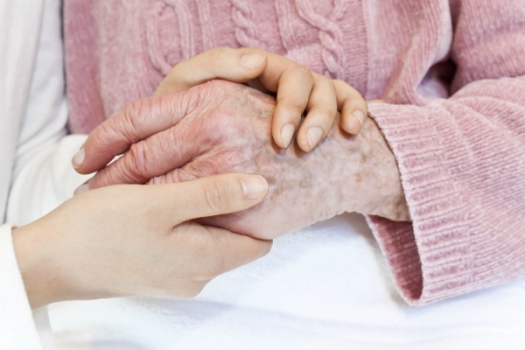The National Institute for Health and Care Excellence (NICE) is currently reviewing its guideline on supportive and palliative care in adults. As part of this process, it has produced a ‘Draft scope consultation’, in which it proposes to remove the section on complementary therapy services from the updated guideline…
It is well established that many patients choose to access complementary therapies as part of an integrated approach to palliative care, to help them manage their symptoms and improve quality of life. What’s more, many carers and health professionals supporting or working with these patients also seek support from complementary therapy services.1-4
Have your say in our short survey
In light of this, we need your feedback and answers to our short survey below, to support an official response from the FHT, which properly represents your views as part of the consultation. Please complete the survey by Friday, 22 January, 2016.
If you work for an organisation in the field of supportive and palliative care, be sure it also registers as a stakeholder and responds to the NICE draft scope consultation. (Registered stakeholders must send in their comments to NICE by no later than Friday, 29 January, 2016.)
Click here to see the draft scope and to register »
Click here to access the original guidelines that are under review »
Click here to complete FHT’s short survey »
References 1. Mackereth P, Carter A (2008). Complementary Therapies. In: Payne S, Seymour J & Ingleton C (Eds). Palliative Care Nursing: Principles and Evidence for Practice. 2nd edition McGraw-Hill Press: Maidenhead. 2. McLaren N, Mackereth P, Hackman E, Holland F (2014). Working out of the ‘toolbox’: an exploratory study with complementary therapists in acute cancer care, Complementary Therapies in Clinical Practice 20(4): 207-21 3. Roberts D, Wilson C, Todd C, Long A, Mackereth P, Stringer J, Carter, Parkin S, Caress a-L (2013). Complementary therapies in cancer: Patients’ views on their purposes and value pre and post receipt of complementary therapy—A multi-centre case study, European Journal of Integrative Medicine 5: 443-449. 4. Mackereth P, Carter A, Stringer J (2014). Complementary therapy approaches to pain. (Ed. H van Griensven) Pain – a Textbook for Clinicians Elsevier Science.


Leave a reply